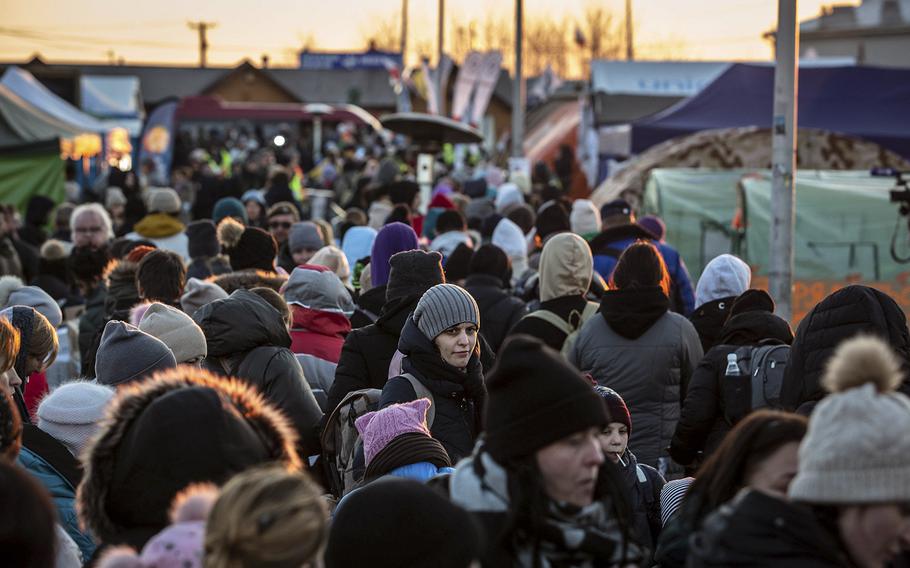
Ukrainian refugees at the Medyka border crossing in Medyka, Poland, on March 18, 2022. As many as 3.3 million Ukrainians — or almost 8% of the country’s pre-war population — may not return home after fleeing Russia’s invasion, a study showed. (Angel Garcia/Bloomberg)
(Tribune News Service) — As many as 3.3 million Ukrainians — or almost 8% of the country's pre-war population — may not return home after fleeing Russia's invasion, a study showed.
That estimate is up by as many as 600,000 since December, Ukraine's Center for Economic Strategy said in a report issued Monday, citing a similar study then. The Kyiv-based think tank attributed the increase to the duration of the conflict, now in its 18th month, Russian attacks on Ukraine's energy infrastructure and growing adaptation to life abroad.
The longer the war lasts, the more Ukrainians who fled the conflict — as many as 6.7 million, according to CES — are likely to make temporary shelters their new home. Ukrainian women, who make up a majority of asylum seekers, will increasingly seek better prospects for their children, the study said.
"People who left the war zone may have nowhere to return," the study said. "So their return will depend on how quickly their regions will rebuild or whether they will be supported to move to other regions of Ukraine."
The prospect of millions of people not coming home poses a grave risk to Ukraine's ambitious plans to rebuild after the war. The study said the potential population drain could undercut the economy, whose exports and infrastructure has been battered by the invasion, by sapping as much as 6.9% of potential output per year.
The Economy Ministry has said the country, whose pre-war population was 43 million, is some 4.5 million short — including workers and entrepreneurs — of achieving a goal to double the size of the economy by 2032.
The number of Ukrainians abroad is up from an estimate of as many as 6.2 million six months ago, CES said. More than half live in Germany and Poland, benefiting from temporary European Union protection measures. A significant number of refugees has lost much of their income, the study showed.
The think tank urged the Ukrainian government to cooperate with EU nations on facilitating their passage back home, providing assistance to returnees during reconstruction, boosting communication abroad with refugee communities and helping to reintegrate children. It also called on the EU to open the labor market to Ukrainians after the war.
Bloomberg's Daryna Krasnolutska contributed to this report.